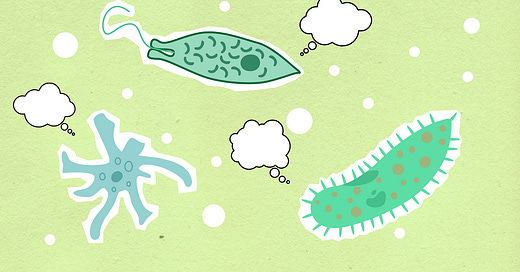Simon Contra Panpychism
Yves Simon wrote this against panpsychism over a half century ago:
The theory that attributes both cognition and desire to all things seems to have its principle source in the concern for a satisfactory explanation of phenomenon of finality, which the universe reveals in all its parts, or, better still, which our intelligence observes in every nature. We see plants responding to stimuli. We count on chlorine and silver to make silver chloride. Indeed, we confidently expect finality wherever there is activity, and we know only things that are active. But does this universal finality not presuppose universal cognition? What we seem to have here is a pre-established relation between a cause and the effect that will issue from it. Yet the effect is not given with the cause in any determinate way and will be something new and additional in relation to it. In other words, finality implies a kind of predetermination of the present by the future, of what exists actually by what exists only potentially. But that which exists only potentially can never as such determine or influence anything. For it to predetermine the present in any way, this future must have actuality somewhere, and that can only be in someone’s knowledge.
Metaphysical reason affirms no more than this. It is the panpsychist philosophy that goes further and claims that cognition is necessarily joined to all activity and that every tendency is an active thing proceeds from knowledge possessed by that thing itself. This interpretation we believe to be arbitrary. For although it is true that for an action to be directed toward its end that end must be known, it is not necessary that it be known by the agent itself; it is enough that this end be known by someone or something that holds the agent in its power. The arrow does not know where it is headed, but the archer does. Indeed, even with regard to animate beings, we cannot always be sure where they move by their own desire and knowledge. Thus scientists are by no means agreed on where, say, an amoeba possesses images and feels emotions. Perhaps they will eventually figure it out experimentally, but it is also possible that we may never know for certain.
We shall find it useful, then, to distinguish between psychic tendencies of subjects who are fully aware of them and natural or apsychic tendencies that spring from the constitutions placed in every existing thing by the creative thought and will. Interestingly enough, though this notion of a natural tendency immediately destroys the basic hypothesis of panpsychism, panpsychism is not necessarily saved by its rejection. When panpsychism rejects the notion of natural or apsychic finality, it also finds itself unable to justify its own position. For even if it were true that every single being is endowed with the power of cognition, one would still have to concede the existence of apsychic finality precisely in order to explain this universal cognitive endowment. For where else could a plant’s knowing response to a stimuli come from? Unless we assume that for this plant to be is to know, the very first such allegedly cognitive response could not be anything else but an expression of a natural and apsychic tendency incorporated in the plant’s constitution. The will wills the intellect to know but only upon being previously enlightened by the intellect. The first act of understanding is not commanded by the will. It is determined by the natural tendency of the intellect toward its perfection — or it never takes place.
Consequently, unless we hold that nothing exists except thought in pure act, we see that, no matter how far panpsychism is extended, it does not allow us to dispense with the role of natural tendencies or to get along without a transcendental principle of order in the universe. The effort to argue against experience and to try to prove that every natural tendency is psychic is both gratuitously pretentious and impossible to maintain. Perhaps people would not be so tempted to attribute emotions to plants and atoms if they simply realized that natural tendencies are to be found aplenty even in intelligent beings. In agreement with common sense, they would then be able to accept the fact that some things lack cognition, and that between these things and those being s that have that power there is a radical difference.”
From An Introduction to the Metaphysics of Knowledge.



